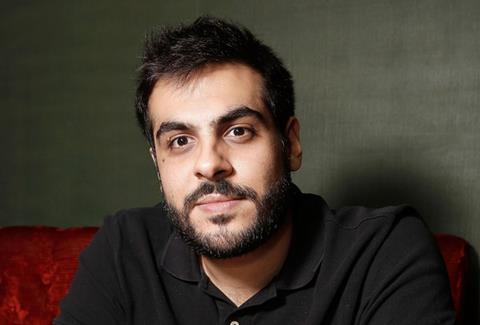The director talks about his ‘kick-ass’ thriller Rattle The Cage (Zinzana), which screens in Dubai’s Muhr Emirati competition

Emirati film-maker Majid Al Ansari’s claustrophobic thriller Rattle The Cage (Zinzana) is a landmark moment in the UAE’s drive to build a film industry: it embraces the type of genre film usually associated with US or European cinema.
Set in a dilapidated police station “somewhere in Arabia in the 1980s”, the picture co-stars Palestinian actor Saleh Bakri as a man who finds himself in the clutches of a sadistic police deputy, played by compatriot Ali Suliman.
Its gala screening in the Muhr Emirati competition follows a premiere at Fantastic Fest in Austin, Texas, in September, where one critic described it as “Tarantino-esque”. It went on to screen in the BFI London Film Festival in October.
Rattle The Cage is based on a screenplay by US duo Lane and Ruckus Skye, and was originally set in a southern US prison. Al Ansari came across the project while reading scripts at Abu Dhabi production company Image Nation, where he has worked for the last five years. “It was beautifully written. I loved the fact it was set in one location as well as the polar opposite characters. I immediately thought if we could do this in Arabic and in the region, this would be a kick-ass film,” says Al Ansari, who adapted the work with the Skyes via e-mail and Skype.
But the clock was ticking for Al Ansari following the introduction of mandatory military service in the UAE in January 2014 for all men between the ages of 18 and 30 years old. Believing he was on the verge of being drafted, Al Ansari went to Image Nation CEO Michael Garin and head of narrative content Ben Ross and asked to be allowed to direct the film.
Four months later, Al Ansari was in pre-production in Jordan. He admits directing seasoned actors Bakri and Suliman was daunting but the atmosphere on set was “collaborative”. He is now gearing up for military service but plans to work on his own scripts at the same time.
“I’d like to write and develop my own project tackling issues we have in the region at the moment.”

























No comments yet